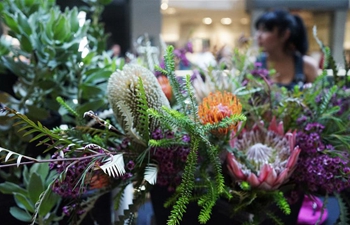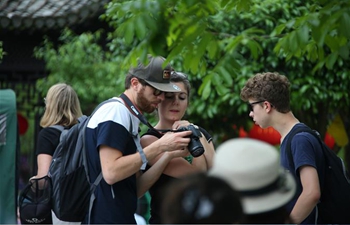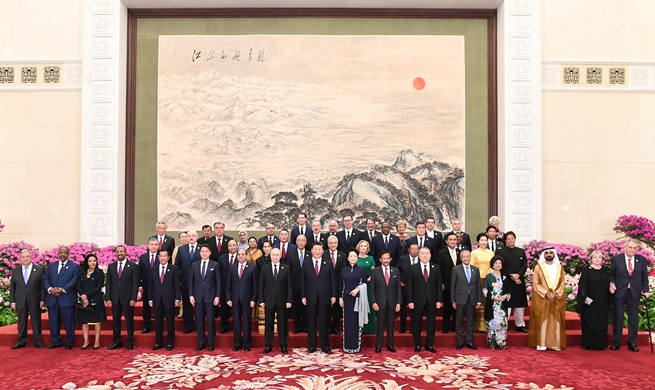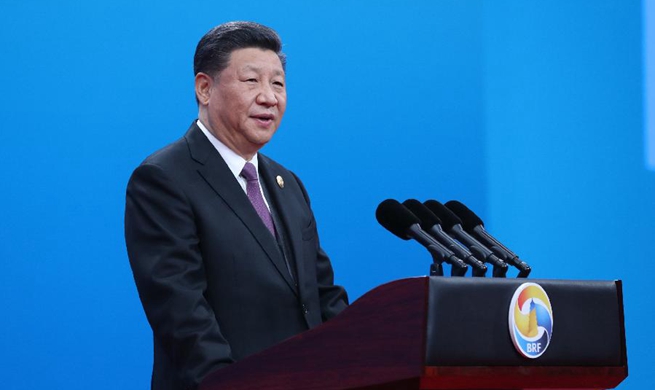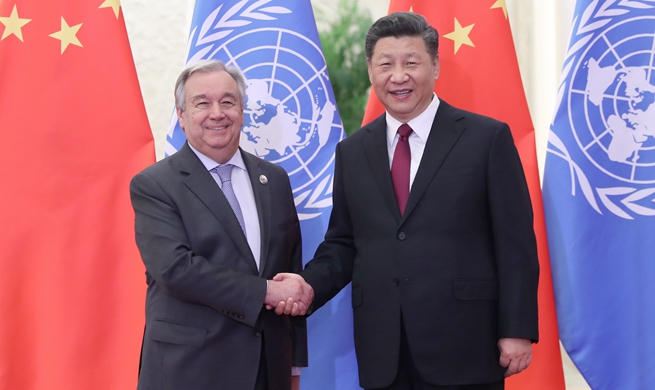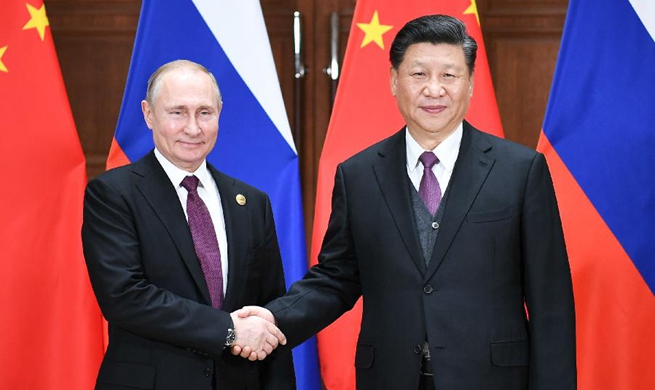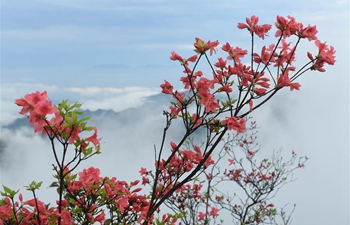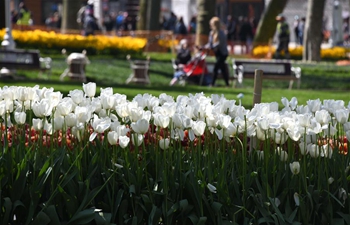WUHAN, April 27 (Xinhua) -- In the 17th century, hundreds of thousands of merchants transported brick tea, blocks of compressed oolong tea or black tea along a trade route that linked central China's Hubei Province and Russia's St. Petersburg.
The 6,500-km-long ancient tea road has been restored to its former glory in recent years, as the tea trade between Hubei and countries along the route has been booming.
"In recent years, brick tea has fascinated many tea lovers in countries along the Belt and Road," said Li Xinhua, former director of the tea industry development bureau in Hubei's city of Chibi, which used to be the starting point of the tea road.
Tea companies in Chibi, a major tea production base with more than 10,000 hectares of tea-growing area, have been seeking to exploit the markets in Russia, Kazakhstan and other central Asian countries since 2015.
To date, the companies have signed overseas deals worth a total of over 100 million U.S. dollars.
"In the past, tea farmers in Chibi compressed tea into hard blocks to keep it dry and preserve its quality, as it could take months before the tea reached overseas customers," Li said.
Although faster logistics powered by modern transportation systems have rendered the storage method no longer necessary, brick tea has continued to charm an increasing number of overseas aficionados.
"The charm of brick tea lies in that its production process involves working with your hands. The process could never be replaced by machines," said Sun Dunjia, a 63-year-old local inheritor of producing brick tea.
"Foreign customers have a fancy for the long history behind brick tea and its cultural significance," Sun added.
Tea producers in Chibi have also been adding modern touches to traditional brick tea to cater to diverse needs in expanding overseas markets.
"Traditional brick tea looks like big, heavy clay bricks, and it's hard to break it into pieces," said Jin Li, vice general manager of a local tea company.
Jin said her company had developed a new type of brick tea that has the shape of chocolate bars and is easy to break and carry.
"Overseas customers, especially young customers, prefer brick tea products that are smaller in size, such as tea bags and tea drinks," she said.
Thanks to such innovations, her company recorded a sales volume of over 10 million yuan (1.5 million U.S. dollars) in overseas markets last year.
"Some customers even use our products as air filters because brick tea is an effective absorber," she said.






